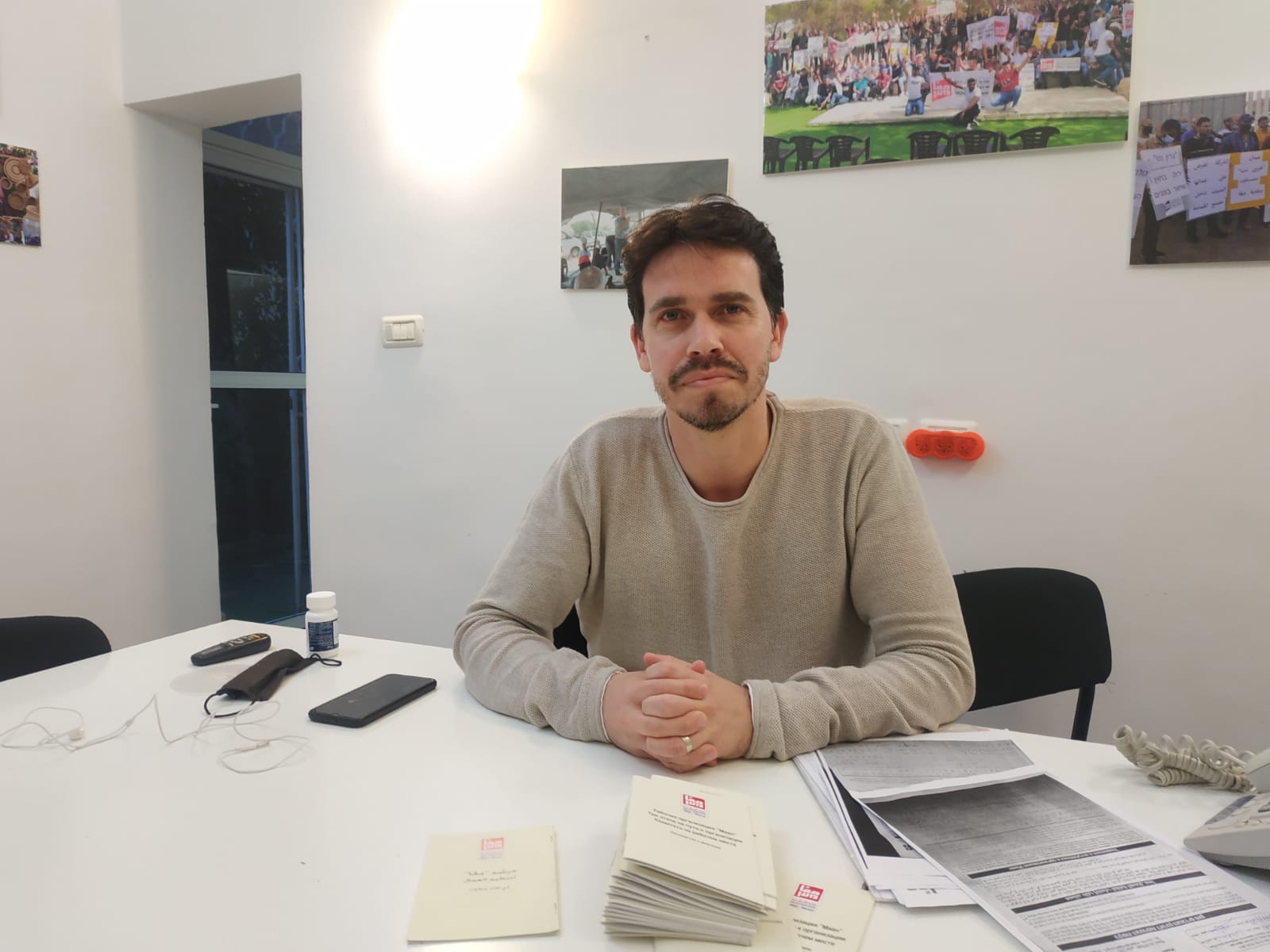
Unanswered questions
How to protect the rights of Russian-speaking workers? How to ensure normal working conditions at construction sites, factories, installation of various structures, for example, solar panels? What instruments exist in Israeli law? How can you help workers stay healthy by providing a healthy working environment? How do you get all benefits due and adequate pay for your labor?
At the meeting, which was held on March 1 at the premises of the Trade Union “Maan” These issues were discussed.
Coordinator “Ma’an” Yoav Tamir and the head of Dor Moriah, Kaminnik Igor, discussed the problems of the Israeli labor market. Israel’s labor market is a Klondike for hiring firms. There are significantly more such firms in Israel than in other industrialized and developed countries.
The owners of these for-hire firms (kablans) do not protect the labor rights of their workers in any way. On the contrary, numerous journalistic investigations show a terrible picture, gray wages, lack of social benefits and black money. Labor unions have no influence on this situation. No protection whatsoever for the workers mercilessly exploited by the kablans.
Histadrut is a well forgotten old thing.
The Histadrut (Confederation of Trade Unions) is constantly losing ground in the social dialog between employers, government and trade unions. Over the past 20 years, the percentage of workers whose interests Histadrug represents has fallen from 85% to 26%. And continues to fall.
The Histadrut has become a social trough for the rich. In large state-owned enterprises, the Histadrut can influence management policy. The management of the Electric Campaign or Israel Railways depends on the state and politicians. And those have political and budgetary geshefts with the Histadrut leadership. But what are workers in small campaigns and for-hire firms to do? How do they protect their rights? The unions are not interested in these workers as. they pay neither financial nor political dividends. There is no one to protect the labor rights of workers, and they are left alone with the arbitrariness of employers.
Russian-speaking problems of the Histadrut
This is especially true for new repatriates, especially from the former Soviet Union. Russian-speakers are forced to work almost immediately after arrival, or after completing 6 months of the absorption basket payment. They enter the labor market without sufficient knowledge of the language and Israeli realities. A market where they are, for employers, subject to deception, exploitation and discrimination.
Igor Kaminnik noted:“….. even membership in the Histadrut does not help a worker to protect his rights at all. For example, in the Haifa branch there are no counselors in Russian. Histadrut specialists are responsible for specific sectors. They are unable, and often unwilling, to help workers who have settled through kablans. In factories and small industries, in construction firms. If you settle through a kablan, you are an inferior worker. Why doesn’t the Ministry of Absorption care about protecting the labor rights of Russian-speaking Israelis? Back in the day, I addressed a question to Alexto Kushnir. He was then Director General of the Ministry under Sofia Landwehr. Why are there no grants for the Histadrut, at least to pay for Russian-speaking labor rights consultants? He replied that they were not interested in the matter.”
Yoav Gal Tamir noted that the exploitation of workers in Israel is only getting worse. And the main reason is that labor laws are increasingly liberalized. Only one-third of those employed are members of workers’ organizations. The vast majority of workers are not protected by collective bargaining agreements and are subject to the arbitrariness of employers.
Workers’ organizations as a panacea
“Maan has been working among unorganized workers in various sectors for many years. The union sees the creation of workers’ associations as the only instrument to fight exploitation. Only united workers can stand together against the employer. Only an association can demand rights, decent wages and necessary working conditions.
Repatriates from the former Soviet Union make up a significant portion of workers in the Israeli economy. And their rights must be well protected. There are associations of care workers, security guards, etc. And all of these associations help protect the rights of their members.
Establishing working committees in the construction industry is the only way to protect Russian-speaking returnees in the Israeli labor market. At least somehow ensure that their labor rights are protected. A workers’ committee supported by a trade union organization changes the balance of power between employee and employer.
The drivers’ union is a road with no end in sight
Yoav Gal Tamir spoke about the experience of establishing a working committee of truck drivers. The creation of this drivers’ union was supported by Maan. Most companies ignore drivers’ rights and safety regulations. Because of this, there are numerous cases of overworked drivers and the use of defective vehicles. Establishing a working committee helps to bargain collectively and streamline labor relations.
Specialists of the trade union “Maan” provided organizational and legal support to the initiative group. Published informational materials on the establishment of the trade union in Russian. But they also faced active opposition from the owners of the firms. With open threats against workers who have begun to unionize.
Based on the results of the meeting, it was decided to hold a meeting with the employees to discuss the stages of setting up a working committee and the accompaniment of this process by Maan specialists
